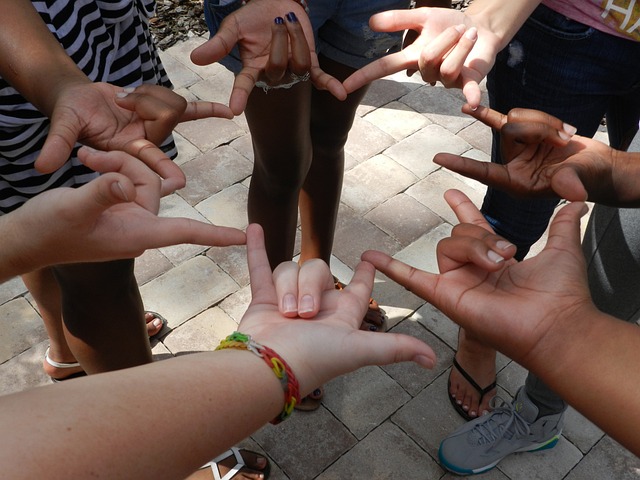Share This Article:

We recently ran in our News section Dr. Claire Muselman's multipart series on leadership applying the lessons of Robert Fulghum's Everything I Needed to Know I Learned in Kindergarten to workers' compensation. For readers' convenience, we've compiled the whole series here.
Back to Basics – The Human Element

The workers' compensation claims industry finds itself at a critical juncture, witnessing a fundamental transformation with far-reaching implications. Historically characterized by rigid legal compliance and a procedural approach, the industry has often been seen as impersonal and detached from the human experience. A paradigm shift is now taking place, embracing a more compassionate and empathetic approach that recognizes the injured worker's humanity, individual needs, and unique challenges.
Inspired by the profound and timeless wisdom found in Robert Fulghum's "All I Really Need to Know, I Learned in Kindergarten," a new path is being carved. This path moves beyond mere adherence to rules and regulations, fostering a culture that emphasizes empathy, compassion, understanding, and the intrinsic value of human connection. As societal norms evolve to prioritize individualized care, the workers' compensation industry is aligning itself with these values, heralding a new era where the injured worker is not a case number but a person deserving of respect and care.
Why This is Important in Workers' Compensation
In an era where individualized care, empathy, and personalized attention are increasingly valued in all areas of life, the workers' compensation industry cannot remain an exception. Injured workers are not mere numbers or cases; they are individuals facing physical, emotional, and financial hardships, often navigating a complex system in a time of distress. While necessary, the legal and compliance-driven approach often overlooks this human element, potentially leading to dissatisfaction, mistrust, misunderstandings, and a prolonged recovery process. The industry can create a more supportive and responsive environment by emphasizing empathy, understanding, and compassion and incorporating these human-centered principles into claims handling. This environment fosters healing and trust while promoting collaboration between all parties involved, transforming what can be an adversarial process into a cooperative and humane one.
The Five-Part Series
In this comprehensive five-part series, we will explore various facets of this paradigm shift, offering insights into the following aspects:
(1) Personal Leadership and Collaboration: Personal leadership is about self-awareness, empathy, and mindfulness. It shapes how claims professionals interact with injured workers, colleagues, and other stakeholders. Part one will explore how self-leadership fosters compassion, efficiency, and positive relationships. We'll delve into daily practices, collaboration techniques, and the art of building trust through clear communication and genuine connection.
(2) Key Concepts from Robert Fulghum: Part two dives into Fulghum's universal principles, applying them to the claims industry. The simple wisdom of sharing, playing fair, living a balanced life, and more can lead to profound transformations. How can these principles guide the industry toward respecting the injured worker's dignity, ensuring fairness, and promoting overall well-being?
(3) In Practice/Application: Theory meets practice in part three. Here, we'll explore real-world applications of these human-centric principles, examining how they align with ethical practices and legal responsibilities. How can real-world scenarios and case studies illustrate the tangible benefits of treating others with respect and dignity?
(4) The Importance of the Human Element: The fourth part delves into the essence of human connection in the claims process. From building trust to recognizing injured workers' unique needs and emotions, we'll explore the multifaceted approaches to creating a more fulfilling and successful claims process. What best practices can foster empathy and support, leading to quicker resolutions and healthier recoveries?
(5) Bringing It All Together: The series concludes by integrating these elements, reflecting on how they can revolutionize how claims are handled. This section will examine broader implications for the industry, evolving needs, and future perspectives. How can this new paradigm foster a more compassionate, fair, and practical approach?
A New Era in Workers' Compensation
The transformation of the workers' compensation claims industry is more than a trend; it marks a vital and necessary evolution. This shift aligns with societal values that recognize compassion, fairness, and human dignity as integral components of any process. The five-part series aims to guide, inspire, and lead the way to a more empathetic and practical approach.
By embracing these principles, the industry can redefine success. It creates an environment where injured workers feel seen, heard, and supported; professionals find fulfillment and empowerment; and organizations thrive through trust and collaboration. It's a path that promises professional success and a more humane approach to workers' compensation.
The time has come for the workers' compensation industry to move beyond mere compliance and acknowledge the human being at the core of every claim. This new path resonates with the collective consciousness, favoring an approach that honors the inherent value and dignity of every person involved. The series invites readers to join this transformation journey, illuminating a path that can change not just an industry but the lives of countless individuals who depend on it.
Personal Leadership and Collaboration

Sarasota, FL (WorkersCompensation.com) -- The importance of personal leadership and collaboration cannot be overstated in the complex and multifaceted landscape of workers' compensation claims. These foundational principles form the bedrock of a compassionate and efficient approach essential for success. Personal leadership, encompassing areas like setting the right tone for the day, deep self-awareness, and a thorough exploration of communication, organization, and attitude, empowers professionals to navigate the process with empathy and precision. Simultaneously, building robust relationships through preparation and collaboration within the organization and with external stakeholders lays the groundwork for trust, transparency, and effective coordination. Together, these elements create a comprehensive framework that supports the claims professional, injured workers, and entire organizations involved in the claims process.
Self-Leadership 101
Setting the Tone
Starting the day with a clear plan allows claims professionals to handle cases empathetically and efficiently. This process goes beyond merely listing tasks and involves aligning daily goals with the larger mission of treating injured workers with respect and dignity.
Preparation begins with thoroughly reviewing the day's agenda, assessing priorities, and setting specific objectives, ensuring everything runs smoothly. This organizational readiness is foundational in building trust with injured workers, letting them know their case is handled with attention and care.
Mindfulness practices, such as taking a moment to center oneself, can foster a calm and empathetic approach to daily interactions. By maintaining an awareness of one's emotional state and reactions, claims professionals can better relate to the injured worker's experience, enhancing the quality of communication and support.
Ensuring that daily activities align with personal and organizational values helps maintain a focus on treating injured workers with compassion and fairness. This alignment reinforces the ethical responsibility of the professionals in the industry, creating an environment where the human element of the claims process is recognized and prioritized.
These strategies form a holistic approach to the start of each day in the workers' compensation field, setting the tone for meaningful interactions and outcomes that honor the individuality and needs of each injured worker.
Self-Awareness
Understanding oneself, including recognizing personal strengths, weaknesses, biases, and attitudes, is essential for fostering more positive relationships with injured workers.
Reflective practices, such as regular self-reflection, help professionals identify areas for growth and development, leading to more thoughtful and empathetic interactions. This self-awareness creates a platform for continuous improvement and more nuanced responses to each injured worker's unique situation and needs.
Emotional intelligence, or cultivating awareness of one's emotions and how they affect interactions, allows for more thoughtful responses to injured workers' needs and concerns. By understanding and managing one's emotional reactions, professionals can create a more supportive and respectful environment for those navigating the complex claims process.
Ongoing learning, such as continuous education in communication, psychology, and interpersonal skills, can provide valuable tools for self-awareness and relationship-building. The commitment to learning and growing in these areas reinforces the ability to relate to and empathize with injured workers, fostering trust and collaboration.
These self-awareness and personal growth elements are integral to creating a human-centered approach in the workers' compensation industry.
Deep Diving
Exploring deeper into areas like communication, organization, and attitude is essential for developing effective strategies to approach the complex and sensitive nature of workers' compensation claims.
Communication skills are central to this endeavor. Understanding different communication styles and methods can improve interactions with diverse individuals, fostering clarity and trust. Active listening to injured workers and colleagues ensures that their needs are understood and addressed while articulating thoughts clearly and respectfully contributes to transparent and constructive dialogues.
These practices create a foundation for positive relationships and effective problem-solving.
Organizational skills play a crucial role in the claims process. Creating effective systems for managing information, time, and resources is vital in handling claims efficiently. Prioritizing tasks through time management ensures that important matters are addressed promptly. Using available tools, including technology, effectively streamlines the process and facilitates collaboration. Organized and thoughtful control of the claims process leads to better outcomes for all involved.
Attitude is often underestimated in professional interactions but is critical in workers' compensation. Maintaining a positive and empathetic attitude toward all stakeholders encourages a human-centered approach. Putting oneself in the shoes of the injured workers and understanding their experiences fosters compassion while building resilience helps professionals navigate the often complex and emotional terrain of workers' compensation claims. A positive attitude not only benefits the professional but creates an environment where the dignity and individuality of each injured worker are respected and valued.
These three aspects — communication, organization, and attitude — synergize to form a more humane and practical approach to workers' compensation claims, reflecting a shift in the industry towards empathy, understanding, and individualized care.
The concepts within Self-Leadership 101 are not just theoretical ideas but practical tools for claims professionals. By setting the right tone, cultivating self-awareness, and diving deep into essential skills, they can navigate workers' compensation's often-challenging landscape with efficiency and empathy.
These principles guide personal development that directly impacts the quality of interactions with injured workers, ultimately leading to more successful outcomes.
Building Relationships
Building and maintaining strong relationships is essential to the success of the workers' compensation claims process. These relationships extend to the injured workers and to internal and external stakeholders involved in various stages of the claim.
Be Prepared
Having all necessary documents and information ready is critical in building trust and confidence with injured workers and other stakeholders. This involves several key components. Keeping all relevant documents systematically organized, including medical records, legal documents, communication logs, and any additional pertinent information, ensures that they are readily accessible when needed. Ensuring that all information is accurate and up-to-date minimizes misunderstandings and potential conflicts. Accuracy is paramount in maintaining credibility and trust. Informing all parties involved about the claim's status and what to expect in the coming stages through preemptive communication reduces anxiety and sets a positive tone for interactions. Finally, keeping claims professionals well-trained and informed about procedural requirements ensures they are always prepared to handle claims competently. These elements collectively contribute to a more transparent, efficient, and respectful claims process.
Collaboration
A well-coordinated system emphasizing collaboration among various departments and external partners can streamline the claims process and enhance efficiency. This collaboration begins with cross-departmental cooperation. Effective coordination between different departments, such as billing, IT, legal, and medical, helps create a seamless flow of information and support. Regular cross-departmental meetings foster a sense of shared purpose and keep everyone on the same page. At the same time, technology integration through integrated software platforms ensures that all parties have access to the information they need when needed.
Building relationships with external stakeholders, such as medical providers, legal counsel, and third-party administrators (TPAs), is equally essential. Establishing clear communication channels and expectations helps prevent misunderstandings and facilitate smoother interactions while ensuring all parties understand and work towards common goals, creating a more cohesive and successful process.
Fostering a trusting relationship with injured workers is paramount in this collaboration. Transparent communication, empathy, and responsiveness go a long way in creating a positive experience for those navigating a difficult time. This sense of trust and understanding helps to humanize the process, creating a more compassionate and practical approach.
Building a collaborative culture within the organization also plays a vital role in enhancing efficiency. By emphasizing teamwork and mutual respect, a cohesive team can work together more efficiently, supporting one another and sharing insights and knowledge. This team culture strengthens the overall process, reflecting the values of empathy, professionalism, and integrity in the workers' compensation claims industry. The integration of these collaborative practices underlines the importance of human connections in what can be a complex and challenging field.
The Building Relationships component within the workers' compensation claims process is multifaceted and dynamic, requiring careful attention to detail, preparation, and collaboration. It extends beyond mere procedures to embody a philosophy of interconnectedness, empathy, and shared purpose. By focusing on these elements, claims professionals can create a more effective, compassionate, and human-centric approach that benefits everyone involved.
Ethical Practices and Fair Play

Integrating ethical practices and principles of fair play is paramount in the demanding landscape of workers' compensation claims. Section 2 delves into the essential elements of this approach, emphasizing the importance of open communication, responsiveness, and a genuine commitment to fair treatment. From the day-to-day interactions that require clarity and acknowledgment to the specialized attention needed for different cases, such as self-represented or elderly injured workers, the section underscores the necessity of recognizing and addressing injured workers' individual needs and unique circumstances. Grounded in principles of integrity, empathy, and respect, this section explores how ethical behavior fosters trust and cooperation and is a fundamental requirement in delivering justice and humanizing the claims process.
Open Communication and Responsiveness
The cornerstone of successful claims management in workers' compensation is a robust commitment to open communication and responsiveness. These principles are not merely best practices but vital components defining the relationship between claims professionals and injured workers.
Avoiding Breakdown: Clear and timely communication is more than an administrative responsibility; it prevents misunderstandings that can escalate into conflicts. Ensuring that information is transmitted accurately regarding medical procedures, legal obligations, or financial matters safeguards against misinterpretation. Transparency in communication fosters an atmosphere where all parties feel informed and respected, setting the stage for productive interactions. Regular updates and clear explanations minimize confusion, reduce anxiety, and promote stakeholder collaboration.
Being Responsive: Responsiveness goes hand in hand with open communication. Acknowledging received information promptly and providing timely responses are more than courteous practices; they are critical to building trust and cooperation. Often navigating an unfamiliar and potentially overwhelming system, the injured worker seeks reassurance and guidance. Prompt responses to queries and consistent follow-up demonstrate a genuine commitment to their well-being and signal that their concerns are a priority. Such an approach humanizes an often-bureaucratic process and elevates the quality of care and compassion within the system.
Open communication and responsiveness create a foundation for more empathetic and ethical claims handling. They reflect a dedication to treating injured workers with the respect and dignity they deserve, creating a more transparent and cooperative environment. In an industry where legal compliance and procedural rigor can sometimes overshadow the human element, these practices underline the importance of people-centered care and remind all involved that behind every claim is a human being with needs, fears, and hopes.
Fair Treatment of Injured Workers
Ensuring fair treatment of injured workers is paramount in the workers' compensation claims process. This fairness goes beyond legal compliance and enters the realm of ethical commitment, where compassion, honesty, and understanding guide interactions.
Don't Play Games: In workers' compensation, gamesmanship cannot be allowed. All interactions must be conducted in good faith, without unwarranted denial of benefits. Good faith entails a rigorous adherence to the principles of honesty and integrity, where decisions are made based on facts and applicable laws, not biases or predetermined agendas. When claims professionals approach each case with an unbiased view, diligently seeking the truth and acting accordingly, they build a reputation for fairness that enhances trust among all stakeholders.
Responsiveness: Fairness is not merely passive; it requires active engagement. Immediate attention to queries and concerns is more than operational efficiency; it demonstrates respect and empathy. By being responsive, claims professionals signal that they recognize the importance of each individual's needs and concerns. This practice helps avoid pitfalls arising from delays and fosters a positive relationship between the injured worker and the claims handler.
Understanding Individual Needs: Recognizing that injured workers are not merely cases but real people suffering from lost wages, physical pain, and emotional distress is essential. This understanding goes beyond sympathy and enters the realm of empathy, where the claims professional actively seeks to perceive the situation from the injured worker's perspective. Customizing communication, addressing specific needs, and being aware of unique challenges help build a personalized approach that resonates with the injured worker. Such an approach humanizes the process and underscores the value of treating everyone with dignity and respect.
Fair treatment of injured workers is not simply a matter of policy; it reflects an organization's values and culture. When these principles are embedded in every aspect of the claims process, they create a compassionate environment that recognizes the human dimensions of a claim. They transform the interaction from a transactional experience to a relationship built on trust, understanding, and genuine care. By prioritizing the fair treatment of injured workers, the workers' compensation industry can foster a more humane and ethical approach that resonates with all involved and enhances the system's overall effectiveness.
Real-life Scenarios
Within the complex world of workers' compensation, real-life scenarios often present unique challenges that require specialized attention and understanding. Claims professionals must be prepared to address these situations with care, empathy, and expertise.
Pro-se Injured Workers: Pro-se injured workers are those individuals who choose to represent themselves without legal counsel. This decision can be motivated by various reasons, such as financial constraints or a desire for personal control over the process. However, it often leads to complexities that require special attention. Claims professionals must be mindful of the knowledge gap with pro se individuals and provide clear, concise, and non-technical communication. They must also ensure that all interactions are conducted fairly without taking advantage of the injured worker's lack of legal representation. By being patient, empathetic, and transparent, claims professionals can support pro se injured workers through the process, maintaining integrity and fairness at every step.
Elderly Injured Workers: Older workers may have unique needs that must be acknowledged and met. The aging population often faces additional challenges, such as chronic health conditions, reduced mobility, or cognitive impairments. These factors can complicate the claims process and require specialized care and understanding. Tailoring communication to the specific needs of older adults, being mindful of potential sensitivities, and providing additional support where needed are crucial elements in managing these claims effectively. Building relationships with family members or caregivers, when appropriate, can enhance understanding and ensure that the unique needs of elderly injured workers are addressed. Incorporating medical expertise specializing in geriatrics may also contribute to a more nuanced and compassionate approach.
Real-life scenarios exemplify the diversity of situations that can arise within the workers' compensation system. They underline the importance of flexibility, empathy, and specialized knowledge. By recognizing the specific needs of different individuals and adapting processes accordingly, claims professionals can create a more responsive and humane system that genuinely serves the injured workers it is designed to support. In turn, these practices contribute to a more robust and ethical approach that meets legal requirements and goes above and beyond in honoring the human dignity and individuality of every person involved in a claim.
Restorative Efforts

Workers' compensation claims, by their very nature, involve distressing and life-altering experiences. The primary objective must always be restoring injured workers to their pre-accident conditions, both physically and emotionally. Section 3 delves into the critical aspect of restorative efforts in the claims process. From collaborative approaches that actively involve the injured worker in their recovery journey to the profound power of apologies and respect, this section emphasizes the human side of claims management. It recognizes that beyond the legal and procedural aspects, there lies a moral responsibility to heal, respect, and restore the dignity of those who have suffered workplace injuries. These principles are the bedrock for building trust, fostering empathy, and achieving a more compassionate and effective workers' compensation system.
Restoration to Pre-Accident Conditions
Collaborative Approach to Restoration
Returning injured workers to their pre-accident conditions is a complex task that demands more than medical treatment alone. It requires a holistic approach that views the injured worker as a claimant and an active partner in their recovery journey. A collaborative approach means working with the injured worker, medical providers, rehabilitation professionals, and employers to create a tailor-made recovery plan. This collaboration can include designing suitable work accommodations or identifying new career paths if returning to a previous job is not feasible. The ultimate goal is to align the recovery strategy with the individual's unique needs, abilities, and aspirations, all while maintaining open communication and mutual respect. A shared understanding and agreed-upon plan for returning to work can lead to a more satisfactory and expedient recovery process.
Acknowledging Mistakes and Making Amends
Mistakes can and do happen in the intricate and highly regulated field of workers' compensation. Whether it's a delay in processing a claim, an incorrect assessment, or miscommunication, errors can further strain an already stressful situation. Acknowledging these mistakes is not only a demonstration of integrity but also a crucial step toward rebuilding trust with the injured worker. Owning up to errors means taking responsibility, offering a sincere apology, and outlining the actions that will be taken to correct the mistake. It's about making amends and showing the injured worker that their well-being and trust are valued above all else. This transparent and empathetic approach can turn a negative experience into an opportunity to strengthen the relationship and build confidence. It humanizes the otherwise bureaucratic nature of the system and emphasizes the commitment to fairness and respect.
Apologies and Respect
Expressing Regret and the Power of Apology
Misunderstandings and mistakes can sometimes occur in the intricate process of workers' compensation claims. When this happens, expressing regret can be a powerful tool in maintaining trust and goodwill. Apology letters or personal apologies go beyond mere legal compliance and address the emotional aspect of the situation. A heartfelt and sincere apology can make a substantial difference in how an injured worker feels about the process, turning a potentially harmful experience into a reaffirming one. Apologizing demonstrates empathy, recognition of the injured worker's feelings, and a commitment to rectifying the issue. It's not just about admitting fault; it's about validating the emotional impact of a situation and reinforcing the importance of human connection.
Respectful Communication and Common Courtesies
The language and tone used in communication with injured workers are essential to conveying respect and empathy. Simple words like "please" and "thank you" are not formalities or niceties. They are fundamental expressions of respect and acknowledgment of the individual's dignity. Respectful communication involves more than polite words; it also encompasses actively listening, asking open-ended questions, and engaging in a dialogue that values the injured worker's input and perspectives. It fosters an environment where injured workers feel seen, heard, and appreciated. In the often complex and frustrating process of workers' compensation, these basic courtesies can build trust and ease tensions, emphasizing the humanity and compassion that should underpin every interaction.
In workers' compensation, the complexity of claims can sometimes overshadow the fundamental human elements at the heart of each case. Section 3: Restorative Efforts highlights a profound truth that should guide all those involved in this critical field: injured workers' inherent dignity, emotions, and unique needs must never be lost in the process. By emphasizing collaboration, acknowledgment of mistakes, sincere apologies, and respectful communication, we can build an efficient but also compassionate and humane system. It's a reminder that behind every claim is a person seeking understanding, support, and restoration. By returning to these basic principles and focusing on the human connection, we fulfill our legal obligations and our moral responsibility to heal and restore those who have suffered in the workplace. Human connection is not merely a strategy but a philosophy that recognizes the value and worth of every individual, weaving empathy and respect into the very fabric of workers' compensation.
Balance and Respect

In the ever-demanding field of workers' compensation, striking the right balance is not just an aspiration but a necessity. Section 4, titled "Balance and Respect," dives into the foundational aspects that enable professionals to thrive personally and professionally. This section explores the intricate dance between personal growth, work/life balance, and gratitude practice.
By nurturing these essential elements, we open the doors to a fulfilling career and a life rich in meaning and satisfaction. Within these pages, we'll unearth how daily learning, thinking, and working contribute to personal and professional development while recognizing that a healthy balance between work and personal life leads to happier, more productive professionals. By weaving gratitude into the fabric of daily life, we foster a positive environment that uplifts ourselves and those around us. Join us as we explore the principles and practices that hold the power to transform not just our work but our lives.
Personal Growth: Learning, Thinking, and Working
The pursuit of a balanced life begins with a focus on personal growth. As a continuous process, personal growth demands constant engagement with learning, thinking, and working. Each of these facets plays a vital role in our overall personal and professional development.
Learning: In the field of workers' compensation, the landscape is ever-changing. Learning is, therefore, not a mere option but a necessity. Whether through formal courses, workshops, or self-directed study, continuous education equips professionals with the latest knowledge and expertise. It sharpens analytical abilities and fosters creativity, enabling one to stay at the forefront of the industry. By adopting a lifelong learning attitude, we cultivate a growth mindset that propels us toward excellence.
Thinking: Critical thinking is the art of evaluating and synthesizing information to make well-informed decisions. Evaluating and synthesizing means analyzing cases, discerning patterns, and crafting strategies tailored to unique situations in our daily work. Reflecting and thinking deeply promotes innovation and problem-solving, enhancing our capacity to navigate complex challenges. It's about moving beyond routine tasks and engaging with our work at a conceptual level, nurturing our intellectual curiosity.
Working: Daily work is more than fulfilling job responsibilities; it's about commitment and perseverance. By setting clear goals, adhering to high standards, and striving for continuous improvement, we contribute to our professional success and personal fulfillment. Working diligently also entails adapting to changes, collaborating with team members, and cultivating a work ethic that aligns with our values and aspirations.
Work/Life Balance: The Key to a Fulfilling Career
Work/life balance has gained prominence in recent years, reflecting a growing understanding of its importance in overall well-being. Encouraging a healthy balance between work and personal life is not only beneficial for individual professionals but also for the entire organization.
Finding Equilibrium: Achieving a work/life balance requires deliberate effort and self-awareness. It means setting boundaries, prioritizing tasks, and making conscious choices that align with our needs and values. Finding equilibrium creates a more rounded and fulfilling life, whether it's allocating time for family, hobbies, or relaxation.
The Benefits of Balance: A healthy work/life balance increases job satisfaction, reduces stress, and improves mental and physical health. It fosters creativity and productivity, as rested and content professionals are more engaged and effective in their roles. Organizations that promote work/life balance attract and retain talent and cultivate a positive workplace culture.
Challenges and Solutions: Balancing work and personal life is challenging, especially in demanding professions. However, flexible work arrangements, supportive leadership, and personal time management strategies can mitigate these challenges, paving the way for a happier, more balanced existence.
Practicing Gratitude: A Foundation for Positivity
Gratitude is often overlooked in professional settings, yet it's a powerful tool for fostering a positive environment. Being thankful for everyday achievements, both big and small, shapes our attitude and enhances our emotional well-being.
The Practice of Gratitude: Practicing gratitude involves recognizing and appreciating the positive aspects of our lives. It's about acknowledging colleagues' efforts, celebrating successes, and finding joy in daily accomplishments. By maintaining a gratitude journal or simply reflecting on our blessings, we cultivate a mindset that focuses on abundance rather than lack.
The Impact of Gratitude: Gratitude has been linked to numerous benefits, including increased happiness, reduced stress, and improved relationships. In a professional context, it promotes teamwork, enhances morale, and contributes to a supportive and encouraging work environment. It's a reminder that there are reasons to be thankful, even when there are challenges.
A Culture of Appreciation: Embedding gratitude into organizational culture goes beyond individual practice. It means recognizing and rewarding achievements, encouraging open and appreciative communication, and fostering a workplace where respect and thankfulness are core values.
A balanced life is not merely an abstract ideal but a tangible goal that can be achieved through conscious efforts in personal growth, work/life balance, and practicing gratitude. These principles interweave to create a harmonious existence that fuels professional success, personal contentment, and fulfillment. The journey towards a balanced life is ongoing, filled with discoveries, challenges, and triumphs, but its rewards are profound and lasting. It is a path that beckons to all seeking a more prosperous, meaningful life within the workplace and beyond.
Looking, Listening, and Team Unity

Sarasota, FL (WorkersCompensation.com) -- Fostering a cohesive approach that prioritizes understanding and collaboration is key in the intricate landscape of workers' compensation. Section 5: Looking, Listening, and Team Unity, focuses on the subtle but essential components that can make or break relationships with injured workers. From honing in on unspoken signals through non-verbal cues to actively engaging in empathetic listening, this section explores the multi-dimensional aspects of communication. Furthermore, it underscores the importance of inclusivity and the realization that success is a collective effort, emphasizing that injured workers, care providers, and claim professionals are all part of one team working towards common goals. It's not merely about procedures and protocols but about building trust, unity, and an environment conducive to healing and cooperation.
Awareness and Active Listening
Observing Non-verbal Cues
In workers' compensation, understanding the concerns of injured workers goes beyond their spoken words. The true feelings or anxieties may often be concealed or understated in verbal communication. This is where the observation of non-verbal cues becomes pivotal. Body language, facial expressions, eye contact, and even the tone of voice can reveal underlying emotions and perceptions that may not be directly expressed. For example, a clenched fist or averted eyes may signal frustration or mistrust, while a relaxed posture might indicate comfort and openness.
By attuning to these unspoken messages, claims professionals can gain a deeper insight into the injured workers' mental and emotional state. This awareness enables a more compassionate and tailored approach, allowing professionals to address concerns that might go unnoticed. It fosters a connection that is not only professional but also humane, demonstrating empathy and a genuine interest in the well-being of the injured worker.
Active Listening
Listening is a fundamental skill in any relationship, and in the context of workers' compensation, it takes on an even more critical role. Active listening involves focusing, understanding, responding, and remembering what the other person is saying. It's not just about waiting for one's turn to speak but truly absorbing the conveyed information and emotions.
Active listening requires a conscious effort to hear the words that another person is saying and, more importantly, the communicated message. It means recognizing the emotions behind the words and understanding the implications and context. When interacting with injured workers, listening to learn rather than respond can provide a more thoughtful assessment of their needs, concerns, and expectations.
In claims management, where emotions can run high, and misunderstandings may have serious consequences, active listening acts as a bridge to trust and collaboration. Injured workers are more likely to feel valued and respected by showing that their voices are heard, and their feelings are understood. This, in turn, can lead to more open communication, greater cooperation, and a smoother, more compassionate claims process.
Observing non-verbal cues and practicing active listening is a powerful tool in the compassionate management of workers' compensation claims. It transcends the mechanical aspects of the process and reaches into the realm of human connection, empathy, and understanding. These skills enhance the relationship between the claims professional and the injured worker and contribute to a more effective and humane approach to recovery and restoration.
Unity and Teamwork
Inclusivity
Workers' compensation doesn't merely involve a claimant and a provider; it's a collaborative endeavor that requires the cooperation of various stakeholders, including the injured worker, medical professionals, employers, and insurance representatives. At the heart of this process, inclusivity plays an essential role.
Inclusivity means ensuring that the injured workers are not just recipients of decisions and treatment plans but active participants. It's about making them feel good about the treatment by involving them in the decision-making, respecting their insights, acknowledging their feelings, and tailoring the approaches based on their unique needs and preferences. Inclusivity also extends to recognizing the cultural, social, and personal differences that may influence the injured worker's perceptions and needs.
The process becomes a shared journey rather than a one-sided imposition by fostering an environment where injured workers feel valued and included. This sense of partnership can significantly increase cooperation, enhance trust, and contribute to more positive and satisfying outcomes for all parties involved.
Team Unity
The concept of team unity further extends the idea of collaboration by emphasizing the collective responsibility and interconnectedness of all parties in the workers' compensation process. It's not just about individual roles but a shared mission to achieve the best possible outcomes for injured workers.
Team unity is built on the understanding that everyone is in this together. Each stakeholder plays a vital part in the healing process, from the treating physicians to the case managers, from the employers to the insurance representatives. Each action, decision, and communication is a piece of a giant puzzle that fits together to form a supportive and efficient system.
A strong sense of team unity encourages open communication, shared goals, and a culture where individual contributions are recognized and valued. It nurtures a positive environment where the focus shifts from mere compliance and procedure to empathy, compassion, and collective success. It reinforces the idea that the well-being of the injured worker is not just the responsibility of one but the shared goal of all.
The principles of inclusivity and team unity reflect a paradigm shift in the approach to workers' compensation. They move beyond the transactional aspects and bring into focus the human elements of empathy, cooperation, and shared purpose. These principles remind us that at the core of the process are real people with real emotions, and the system's success lies not just in the efficiency of operations but in the quality of relationships, trust, and compassion that binds everyone together.
Implications for the Industry
This shift towards a human-centric approach is reshaping the industry. By prioritizing empathy, fairness, respect, and the intrinsic humanity of injured workers, the compensation claims process is becoming more just and effective. The compliance checklist remains essential, but how professionals interact with the human beings behind each claim is equally crucial.
The principles inspired by Fulghum's book have found a practical application in transforming how the industry interacts with injured workers. The industry is moving towards a more compassionate system by focusing on ethical practices, personal development, collaboration, and treating each individual with dignity. This shift, while philosophical, has tangible effects on the day-to-day operations of claims professionals. The human element, long overshadowed, is finally taking its rightful place at the heart of the process, redefining success in the field.

AI california case file case management case management focus claims compensability compliance courts covid do you know the rule exclusive remedy florida FMLA glossary check Healthcare health care hr homeroom insurers iowa leadership leadership link medical NCCI new jersey new york ohio osha pennsylvania roadmap Safety safety at work state info tech technology violence WDYT what do you think women's history women's history month workcompcollege workers' comp 101 workers' recovery Workplace Safety Workplace Violence
Read Also
About The Author
About The Author
-
Claire Muselman
Meet Dr. Claire C. Muselman, the Chief Operating Officer at WorkersCompensation.com, where she blends her vast academic insight and professional innovation with a uniquely positive energy. As the President of DCM, Dr. Muselman is renowned for her dynamic approach that reshapes and energizes the workers' compensation industry. Dr. Muselman's academic credentials are as remarkable as her professional achievements. Holding a Doctor of Education in Organizational Leadership from Grand Canyon University, she specializes in employee engagement, human behavior, and the science of leadership. Her diverse background in educational leadership, public policy, political science, and dance epitomizes a multifaceted approach to leadership and learning. At Drake University, Dr. Muselman excels as an Assistant Professor of Practice and Co-Director of the Master of Science in Leadership Program. Her passion for teaching and commitment to innovative pedagogy demonstrate her dedication to cultivating future leaders in management, leadership, and business strategy. In the industry, Dr. Muselman actively contributes as an Ambassador for the Alliance of Women in Workers’ Compensation and plays key roles in organizations such as Kids Chance of Iowa, WorkCompBlitz, and the Claims and Litigation Management Alliance, underscoring her leadership and advocacy in workers’ compensation. A highly sought-after speaker, Dr. Muselman inspires professionals with her engaging talks on leadership, self-development, and risk management. Her philosophy of empathetic and emotionally intelligent leadership is at the heart of her message, encouraging innovation and progressive change in the industry. "Empowerment is key to progress. By nurturing today's professionals with empathy and intelligence, we're crafting tomorrow's leaders." - Dr. Claire C. Muselman
More by This Author
- May 27, 2025
- Claire Muselman
- May 12, 2025
- Claire Muselman
Read More
- Jul 03, 2025
- Tiffany Amber
- Jul 03, 2025
- NCCI
- Jun 30, 2025
- Cameron Hannum
- Jun 30, 2025
- Kristin Green
- Jun 30, 2025
- Natalie Torres
- Jun 26, 2025
- NCCI




